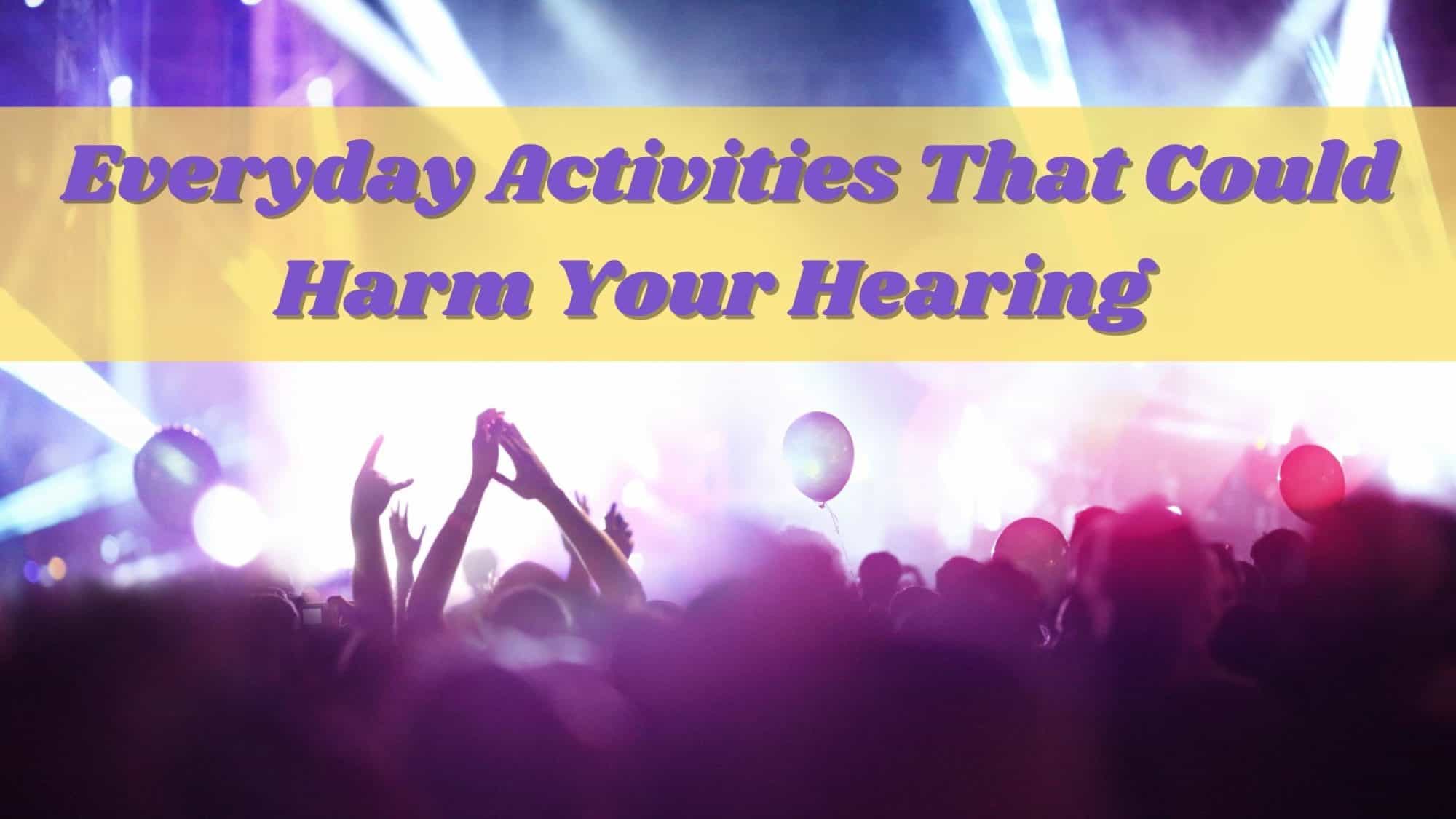- Volunteering for Hearing Health Causes - May 27, 2025
- Questions to Ask During Your Hearing Health Appointment - May 16, 2025
- Exploring Alternative Therapies for Hearing Loss - May 6, 2025
Noise is all around us. We’re exposed to sound all day every day, and we hardly give it a second thought. However, not all sounds are harmless. Some everyday activities can affect your hearing, or even lead to hearing loss. Here are a few of the everyday sounds that could harm your hearing.
Everyday Noise
Take a moment to think about the sounds you hear every day. You may grind your coffee beans in the morning, listen to the radio, drop your kids off at their bustling school, or hear honks, air brakes, and other traffic noise on your commute to work.
This daily sound can start to affect your hearing health. Taken together, this daily noise exposure can harm your hearing health over time.
Loud Activities
Some sounds are obviously too loud. If you work on a construction site, in manufacturing, or anywhere near heavy machinery, you wear earplugs to protect your hearing. But other loud noises will also damage your hearing.
Some everyday activities that can harm your hearing include:
- Mowing the lawn
- Using a leaf blower
- Commuting to work on the subway or a noisy bus
- Running a blender or other kitchen appliance
- Playing in a community band
- Listening to the TV or radio with the volume on high
- Listening to loud music with earbuds or headphones
- Attending a music concert or sports event
- Spending an evening at a noisy bar
- Riding a motorcycle, ATV, or recreational vehicle
- Riding a motorboat
- Hunting or spending an afternoon at the shooting range
Think about the last time you did any of these activities. Did you have a ringing in your ears at the end of the day? Maybe sounds seemed muffled and you couldn’t hear clearly. If this sounds familiar, then this everyday activity may have harmed your hearing health.
Do You Have Noise-Induced Hearing Loss?
Noise-induced hearing loss is hearing loss caused by dangerously loud sounds. The delicate cells in your inner ear can’t withstand these loud noises. Any sounds over 85 decibels (dB) may damage your ears, leading to hearing loss.
Noise-induced hearing loss can be gradual. If you’re exposed to moderately loud sounds day in and day out, your ears never have a chance to rest and recover from the noise. Over several months or years, your hearing may start to change. All the wear and tear will start to show, and you’ll notice hearing loss.
Noise-induced hearing loss can also be very sudden. If you are exposed to very intense noise, you may have hearing loss within a few minutes or hours. For example, spending a couple of hours standing in front of a speaker at a loud concert can cause irreversible damage to your ears. Firing a gun or standing near fireworks without hearing protection can also lead to hearing loss in just a few moments.
Prioritize Hearing Protection
If you’re worried you may be exposed to a lot of loud noise in your daily life, prioritize wearing hearing protection! The good news is that noise-induced hearing loss is completely preventable. With the right hearing protection, you can protect your ears from dangerous noise.
Make sure you look after your hearing health during your everyday activities. Start by avoiding noise when possible, and turning down the volume on your personal listening device. You can invest in quieter appliances or move further away from sources of noise. Finally, slip in a pair of earplugs at work, before mowing the lawn, or when doing any of these noisy activities.
You have several hearing protections options:
- Foam or wax earplugs are great for moderately loud noise. They reduce the sounds to safe levels so you can enjoy your everyday activities without stressing about your hearing.
- Earmuffs provide better hearing protection by creating a seal around your entire ear. These can be worn in very loud noise to reduce noise to safe levels.
- Digital hearing protection are custom-made earplugs. They will digitally analyze the sounds around you, allowing soft sounds to enter the ear canal, but automatically blocking dangerously loud sounds.
Schedule a Hearing Test
If you think you may have hearing loss, book a hearing test! This test shows you exactly what sounds you hear and shows your hearing threshold at each sound. We’ll help you interpret the results of the test and determine if you need hearing aids.

